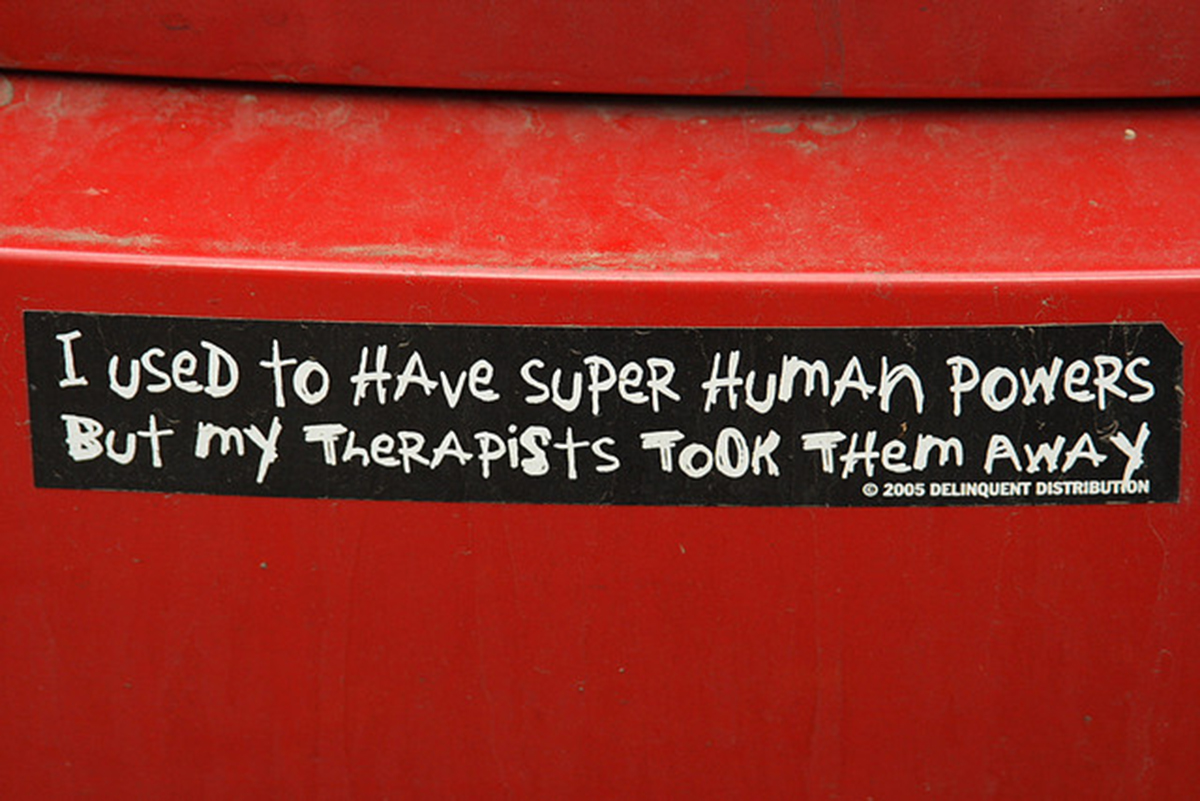Table of Contents
Your Therapist Attempts To Begin A Relationship With You
Therapy is an opportunity for the client to learn how to function better as an individual, not a chance for your therapist to find dates. Be aware of any sexual relationship with your therapist, including your therapist telling sexual jokes (or any joke that makes you feel uncomfortable), asking to meet you outside of therapy, initiating uninvited physical touch (such as hugging), gift-giving, telling you they love you or that you're special, or arranging appointments for times when there's no-one else at the office.

Therapy can be a confusing process. You may even develop feelings for your therapist. But these feelings should never be reciprocated. Therapists receive training in how to handle romantic feelings in their patients and any therapist who shows signs of reciprocation is taking advantage of your vulnerability.
Be aware, too, of any therapist wanting to be your "friend". Competent therapists do not make friends with their patients, and even asking your patient to become your platonic theater-buddy is an abuse of the therapeutic process.
You Live From Therapy Session To Therapy Session
How do you feel when you leave therapy? Do you feel ready to face the world, refreshed and renewed, or do you count the number of days until your next therapy session? If you don't mostly leave refreshed and renewed, that could be a sign of a problem. Therapy is meant to support you in the living of your life, not to become your life. If you feel you're barely living from therapy session to therapy session, that could be a sign that the therapist is not supporting your recovery but is striving to keep you dependent on their treatment.
Every Spare Penny Goes To Pay For Your Therapy
Are you working to pay for therapy? You shouldn't be. Therapy should aim to make you able to lead a productive life without them, not take every penny you have until you're broke and your therapist tosses you aside. If you can't comfortably afford therapy, but still require treatment, a competent therapist will offer to refer you on to a good clinic that charges only what you can afford.
They Don't Understand Your Issue
If you've been abused, there's no point in seeing a therapist who specializes in eating disorders. If you had uterine fibroids, would you go to an ophthalmologist and say, "I know it's not what you'd normally treat, but I thought you could take a stab at it"? A competent therapist will be able to tell you that something is not their specialism and will be happy to refer you to a colleague who understands your problem better.
Always ask how many clients with your specific issue your therapist has treated. If they say "some", or "a few", look elsewhere. You need a therapist who has treated dozens, or hundreds of patients with your issue. A good therapist will have no problem with you finding someone else.
Their Advice Is Against Your Belief System
A good therapist can work around your value system, and will understand and accept your beliefs as the boundaries they are to work within. If they attempt to mock, subvert or change your beliefs, it might be time to find someone else.
You Feel Ashamed After Sessions
Therapy is meant to make you feel safe and validated. It is designed to help you work through the hurts you have experienced and to resolve personal conflicts. The therapist's office should be a safe environment, where you can express your deepest thoughts without fear of censure. If you don't feel validated after sessions, and do not find your therapist's office safe, it's time to find a new therapist.
Something Doesn't Feel Right
Finally, if anything feels "wrong", no matter how hard it is to articulate, and especially if it's causing you to dodge your sessions, the time has come to look elsewhere.
READ Cognitive Therapy Exercises
My Therapist Sucks. What Do I Do?
If your therapist sucks, it's time to move on. A bad therapist will do more harm than good and cost a lot of money, too. Use the American Psychological Association's Psychologist Locator or the online directory of the British Association of Counsellors and Psychotherapists, and find a new therapist.
Remember, you deserve the respect and dignity of being treated by a therapist who is right for you.
- blogs.psychcentral.com/caregivers/2015/01/how-to-spot-a-bad-therapist-10-major-signs
- http://www.dca.ca.gov/publications/proftherapy.shtml
- http://psychcentral.com/lib/therapists-spill-red-flags-a-clinician-isnt-right-for-you https://www.psychologytoday.com/blog/counseling-keys/201104/is-your-therapist-re-traumatizing-you
- Photo courtesy of sanickels: www.flickr.com/photos/9137715@N05/3001073291/
- Photo courtesy of esparta: www.flickr.com/photos/esparta/482348262/


Your thoughts on this